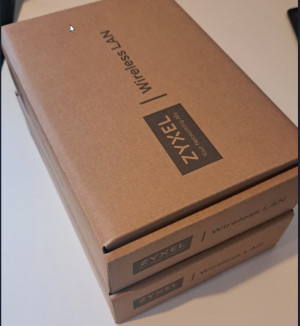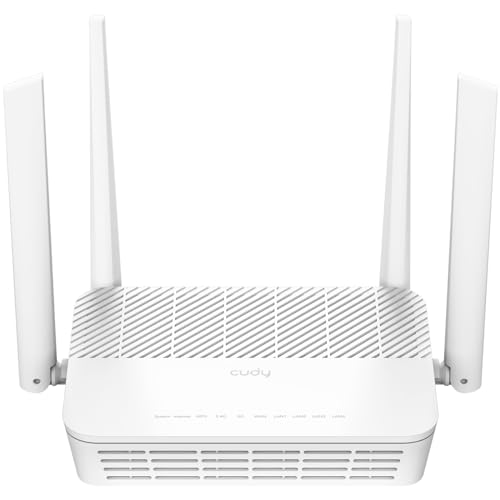OpenWRT router - recommended hardware list 2026

OpenWRT provides a uniform and up-to-date software for different network devices like routers or access points and delivers countless additional setting options, software packages and functions. This makes it possible to combine new and old devices from different manufacturers and, among other things, to use low-cost hardware in a common WiFi, see: Setting up a home network: Extending LAN and WLAN | Improving.
New devices for OpenWrt, not so easy at all
The search for hardware suitable for OpenWrt is anything but simple. The "Table of Hardware" on the OpenWrt page includes around 2000 devices, but very few of them are suitable for use because they are outdated, do not support the current release or certain functions, or are no longer available. After spending some time to find suitable devices and not finding a really good filtered source, I tried to create a list myself. As a basis I used the official OpenWrt device list and filtered it according to the following criteria:
Source is the list from the official OpenWrt page: Table of Hardware: Standard, all devices, this was filtered as follows:
| Version | Devices that support the current OpenWrt version: 24.10.5 (found: 2025-12-23) |
|---|---|
| Installation | Devices where OpenWRT can be installed via the existing web interface. |
| Memory | min. 8MB Flash / 64MB RAM |
| WiFi | support for 2.4GHz and at least 5GHz WiFi-6 (AX WLAN) |
Regarding availability, I looked up the devices on the Amazon site, removed devices that were not listed, and added a link for devices that were found.
I will update the mentioned devices regularly ...
OpenWrt compatible devices
WiFi Router
GL-MT6000 (Flint 2)
Flash: eMMC MB
RAM: 1024 MB
WiFi: 2,4G b/g/n/ax; 5G a/n/ac/ax (MediaTek MT7986AV,MediaTek MT7976GN,MediaTek MT7976AN)
WR3000H v1
Flash: 128NAND MB
RAM: 256 MB
WiFi: 2,4G b/g/n/ax; 5G a/n/ac/ax (MediaTek MT7981BA,MediaTek MT7976CN)
Installation, see: Cudy-Devices
WR3000 v1
Flash: 16 MB
RAM: 256 MB
WiFi: 2,4G b/g/n/ax; 5G a/n/ac/ax (MediaTek MT7981BA,MediaTek MT7976CN)
Installation, see: Cudy-Devices
WR3000S v1
Flash: 128NAND MB
RAM: 256 MB
WiFi: 2,4G b/g/n/ax; 5G a/n/ac/ax (MediaTek MT7981BA,MediaTek MT7976CN)
Installation, see: Cudy-Devices
Single Board Computer
One
Flash: 16,256NAND MB
RAM: 1024 MB
WiFi: 2,4G b/g/n/ax; 5G a/n/ac/ax (MediaTek MT7981BA,MediaTek MT7976CN)
WiFi AP
AP3000 v1
Flash: 256NAND MB
RAM: 512 MB
WiFi: 2,4G b/g/n/ax; 5G a/n/ac/ax (MediaTek MT7981BA,MediaTek MT7976CN)
Installation, see: Cudy-Devices
NWA50AX Pro
Flash: 256NAND MB
RAM: 512 MB
WiFi: 2,4G b/g/n/ax; 5G a/n/ac/ax (MediaTek MT7981BA,MediaTek MT7976CN)
M3000 v1,v2
Flash: 128NAND MB
RAM: 256 MB
WiFi: 2,4G b/g/n/ax; 5G a/n/ac/ax (MediaTek MT7981BA,MediaTek MT7976CN)
Installation, see: Cudy-Devices
WAX202
Flash: 128NAND MB
RAM: 512 MB
WiFi: 2,4G b/g/n/ax; 5G a/n/ac/ax (MediaTek MT7915D)
NWA50AX
Flash: 128NAND MB
RAM: 256 MB
WiFi: 2,4G b/g/n/ax; 5G a/n/ac/ax (MediaTek MT7915)
Source / DevicePage für NWA50AX Pro Step by step practical report, see: NWA50AX Commissioning.
Travel Router
TR3000 v1 v1 (256MB)
Flash: 128NAND MB / 256NAND MB
RAM: 512 MB /
WiFi: 2,4G b/g/n/ax; 5G a/n/ac/ax (MediaTek MT7981BA,MediaTek MT7976CN)
Installation, see: Cudy-Devices
Router
GL-X3000 (Spitz AX) NR
Flash: eMMC,microSDXC MB
RAM: 512 MB
WiFi: 2,4G b/g/n/ax; 5G a/n/ac/ax (MediaTek MT7981BA,MediaTek MT7976CN)
Range Extender
EAX15 v2
Flash: 128NAND MB
RAM: 256 MB
WiFi: 2,4G b/g/n/ax; 5G a/n/ac/ax (MediaTek MT7915)
EAX12
Flash: 128NAND MB
RAM: 256 MB
WiFi: 2,4G b/g/n/ax; 5G a/n/ac/ax (MediaTek MT7915)
Before installation, please read the Device Page of the respective device.
Before installing OpenWrt on a device, please read the Device Page of the respective device thoroughly and follow any instructions!
Use as router and NAT performance
When used as a router, a device with multiple CPU cores should be used for Internet bandwidths greater than 300MBit, see: openwrt.org/toh/tp-link/archer-c5-c7-wdr7500. But OpenWrt also benefits from more than one CPU when used as an access point.
Cudy devices
For Cudy devices, a signed OpenWrt image (Intermediary) from Cudy is required before the official OpenWrt image can be installed:
See: www.cudy.com/de-de/blogs/faq/openwrt-software-download
Download: drive.google.com/drive/folders/1BKVarlwlNxf7uJUtRhuMGUqeCa5KpMnj
Conclusion
It can take some time until a device is listed with the current "stable version" of OpenWrt. Accordingly, the listed devices have usually been on the market for some time, which is not necessarily a disadvantage: Thanks to OpenWrt, the devices get up-to-date, mature software and usually updates for a very long time and are sometimes somewhat cheaper than a newer model, see also: Alternative router firmware: OpenWrt and no longer DD-WRT. A WiFi router with additional access points could be used to set up a home network. All devices listed here could be used as additional access points: WiFi router, Wifi AP or range extender by configuring this as an access point. The connection between the router and additional access points ideally takes place via LAN cables, see: Set up network for home: Expand and improve your LAN / WiFi.
 ({{pro_count}})
({{pro_count}})
{{percentage}} % positive
 ({{con_count}})
({{con_count}})
THANK YOU for your review!
Questions / Comments
(sorted by rating / date) [all comments (best rated first)]
[10 additional Comments in Deutsch]
A very nice device is missing from the list because it only has 32MB RAM. But the AVM 4040 doesn't deserve that. Its advantage is that all hardware is supported and it is extremely easy to handle (flash, debrick, ...). I have used the box in many demanding scenarios.
Is there a similar list for devices without WLAN. I do not need WLAN functionality and try to find a device without unused hardware build in.
Xiaomi AX3200 / Redmi AX6S Xiaomi 4A Giga Xiaomi AIoT Router AC2350 Xiaomi Redmi Router AC2100
Thank you for your feedback. I took a look at the device page. Even they would work, looks like OpenWrt can not simple be installed using the existing webinterface. Looks like they need some kind of hacks to be installed ..
created by Bernhard
very helpful. Thanks.
created by anonym












